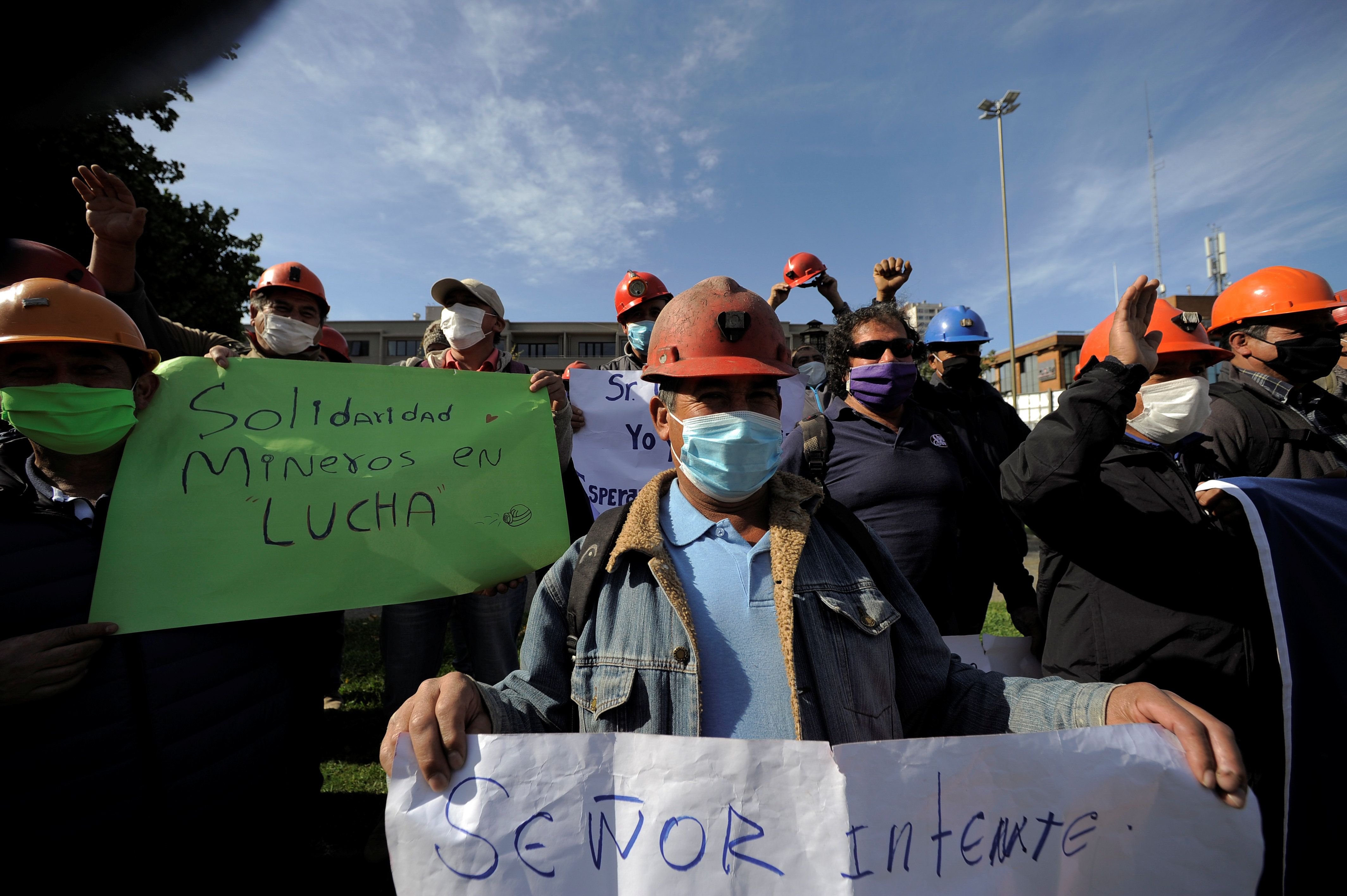Coronavirus Politics Daily: Chile's miners in a jam, sexist attacks in Italy, climate summit postponed
Chile's miners caught in a COVID bind: Even as coronavirus swept their country, Chile's hardy copper miners, whose industry accounts for a full ten percent of Chile's economy, continued to go to work. But now, as their unions prepare for new contract negotiations and seek bonuses for having worked amid COVID-19 hazards, they might be stuck in a tight shaft. For one thing, coronavirus related economic shutdowns around the world, especially in copper-hungry China, have caused prices to plunge, putting copper companies in an especially tight-fisted frame of mind. For another, the pandemic has increased many companies' desire to replace more of their workers with robots — Chile's mining industry is particularly exposed. The outcome of the negotiations, which could shape life for Chile's miners for years to come, is an early bellwether of the kinds of issues that unions around the world may face as they seek to negotiate with employers in the aftermath of the pandemic.
Sexist attacks fly in Italy's Senate: We've already written about how Italy's women doctors and public health experts have been largely left out of Italy's coronavirus response — but here's the kind of abuse that one of the few female officials who is involved has to deal with: amid an angry debate about how to reopen the economy, Education Minister Lucia Azzolina was attacked in grotesque terms on the Senate floor yesterday, when a critic of her school-reopening plans challenged her credibility by likening it to her virginity. Ms. Azzolina, a member of Italy's anti-establishment Five Star Movement, is under police protection after receiving a spate of sexist threats on social media as well. Ensuring the safety of top officials is becoming a wider problem in Italy as tempers flare over the handling of the pandemic and its aftermath. Attilio Fontana, the embattled far-right governor of the Lombardy region — epicenter of the outbreak in Italy — and Deputy Health Minister Pierpaolo Sileri have also been given extra security after receiving serious threats on social media and in public spaces.
UN climate summit postponed: Coronavirus quarantines have done some short-term wonders for the environment, causing emissions to fall and giving wildlife a chance to paint the town in cities around the world. But it's also now caused the United Nations critical COP26 climate summit to be officially postponed for one year, to November 2021. It was simply too hard to get delegates from 196 countries together amid travel restrictions, and effective diplomacy by Zoom at that scale isn't really feasible. So, is the postponement a good thing or a bad thing from the planet's perspective? On the one hand, it pushes off a critical summit where countries were to present, revise, and agree on new emissions targets. At the moment, the world still isn't doing enough to meet the Paris Agreement goals, inked at the 2015 climate summit, of limiting warming to 2 degrees celsius above pre-industrial levels. And the coronavirus crisis, in principle, presents a rare opportunity to reset the agenda on emissions as countries plan their economic recovery strategies. But on the other hand, this year's summit was due to occur right alongside a US presidential election that could dramatically change the climate policy of the world's largest economy: President Donald Trump walked out of the Paris accords, but his opponent Joe Biden has pledged to rejoin them. Maybe waiting to see how that shakes out isn't the worst thing after all.
